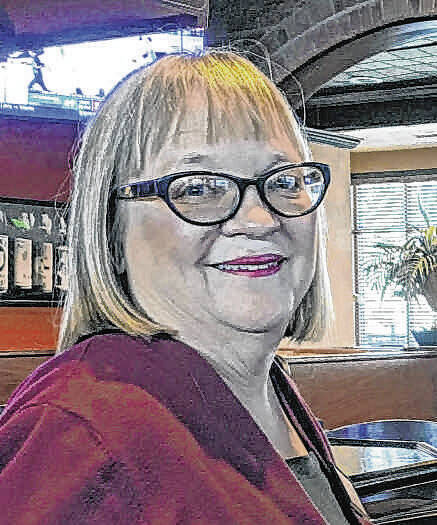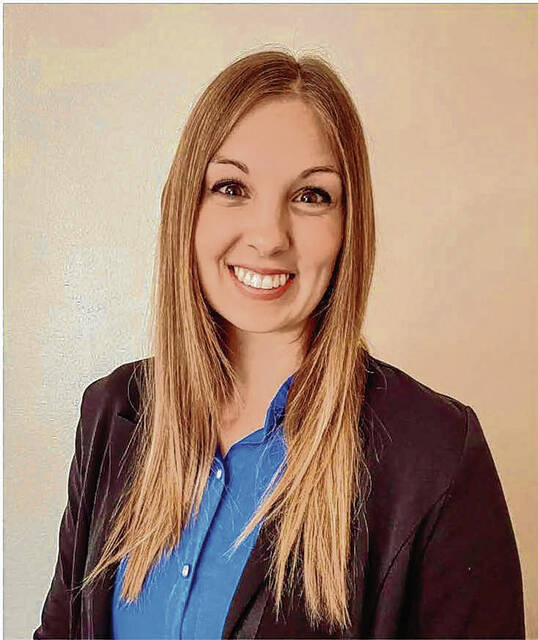
Lamborn

Eggers
The holidays are a time of year when families gather together for what might be the first time in months or even years.
That’s especially true this year as COVID-19 vaccinations have made it safer for people to travel and visit family in person.
That’s also how many family members first notice signs and symptoms of Alzheimer’s and other forms of dementia in their loved ones over the holiday season.
Dementia is a general term for loss of memory and other mental abilities severe enough to interfere with daily life. It is caused by physical changes in the brain, according to alz.org.
November is National Alzheimer’s Disease Awareness Month, and the Alzheimer’s Association Greater Indiana Chapter is urging Hoosiers to know the warning signs and sharing tips for how to approach a loved one who may be showing symptoms.
“It is important to know that Alzheimer’s and dementia are not just normal aging,” said Stephanie Laskey, program director for the Greater Indiana Chapter. “And if you do notice signs, it is important to address the situation. The symptoms may be caused by something else, but if they are caused by dementia, getting a diagnosis offers a number of benefits.”
Laura Forbes, communications director of the Greater Indiana Chapter, said four tips for approaching memory concerns include assess the situation, take action through conversation, think about what to say and reach out for help.
Determine what the person is doing or not doing that’s out of the ordinary and causing concern, such as did the person get lost in a familiar neighborhood or have trouble following a favorite family recipe. Reach out to other family members, especially those who see the person often, about any changes they have noticed.
Consider who would be the best person to discuss the concerns, such as a family member, a friend or a combination of the two. It’s usually best to speak one-on-one so the person doesn’t feel threatened by a group.
Think about what to say to the person of concern. Try engaging him or her by asking questions, such as “How have you been feeling lately? You haven’t seemed like yourself. Have you noticed any changes?” Ask the person if he or she will see a doctor, and show your support by offering to go to the appointment.
Finally, reach out for help by contacting the Alzheimer’s Association, which offers free resources, education programs and a 24/7 helpline 800-272-3900, staffed with master’s-level clinicians who can provide information about how to discuss memory concerns with a loved one.
Shelby Eggers, wellness and community education manager for Thrive Alliance, said 1 in 9 people over 65 have dementia, and about half of people over 85 have some form of dementia, including Alzheimer’s disease.
In response to the growing need, Thrive Alliance is leading the effort to create dementia-friendly communities across south central Indiana with the Dementia Friends Indiana program.
A Dementia Friend is someone who wants to make a positive difference in the lives of people with the condition, according to CICOA Aging and In-Home Solutions of Indianapolis. The Dementia Friends initiative began in Jackson County this past May.
Through the program, participants can become a Dementia Friend by viewing a series of online videos or by attending a live interactive session to learn what it’s like to live with dementia and then turn that understanding into action.
“We’ve had a lot of sessions, which have been virtual due to COVID,” Eggers said. “Specifically in Jackson County, we’ve had two library staff and seven Rotary members that have gone through our Dementia Friends information session and have gotten trained as Dementia Friends.”
The movement seeks to advance education and awareness of dementia, reduce the stigma associated with the conditions and create community environments that are welcoming to those living with dementia and their caregivers.
Eggers said the goal is to broaden the scope and open the program up to the public for anyone who might be interested in joining one or more of these sessions. The more knowledge people have about dementia, the bigger impact they can make on the community, she said.
Eggers has been working on the initiative with Sue Lamborn, outreach manager for Thrive Alliance.
Lamborn said 60 to 80% of people with dementia are diagnosed with Alzheimer’s disease, but there are other kinds of dementia, such as Lewy body, vascular and others.
“With it being Alzheimer’s awareness month, it can be helpful for people to know the top 10 signs of Alzheimer’s and identifying those signs, but mostly knowing where to go for help and support,” she said. “Also, this ties into the Dementia Friends initiative with so many people living with Alzheimer’s in our communities.”
Lamborn said people with Alzheimer’s are living more independently with a caregiver rather than living in a memory unit these days.
“One of the signs of Alzheimer’s and dementia is ‘scuba vision,’ like looking through goggles,” Lamborn said. “Peripheral vision can go away with Alzheimer’s or it might seem like they are looking through pinholes.”
She said to consider some of the things in your environment that you can’t see or that you can change in order to feel more comfortable and engage in it.
“People are aware that those with Alzheimer’s might have short-term memory loss, but they can also have facial and vision perception impairment,” Lamborn said. “They might think a crack in the sidewalk is actually a step, so maybe that’s why they look down or shuffle when they’re walking. It’s important to know the signs of the disease.”
Thrive Alliance is offering another virtual information session to anyone interested in learning how to become a Dementia Friend and also learn ways to make the community more dementia-friendly. The session will be from 3 to 4 p.m. Dec. 9 via Zoom and is free to the public. Registration is required. For information, call 812-372-6918, ext. 2764, or email [email protected].
For more tips and information on the warning signs of Alzheimer’s, visit alz.org/timetotalk or alz.org/alzheimers-dementia/10_signs.
